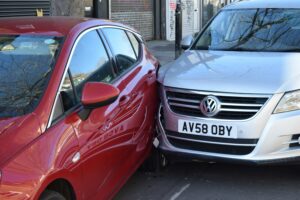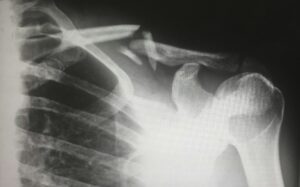Table of Contents
ToggleSuing For Negligent Infliction of Emotional Distress in California

Some personal injuries cause great emotional distress, and California law allows personal injury victims to seek compensation for the emotional injuries they have suffered when they file a negligence claim. If you are considering suing for emotional distress, an experienced personal injury lawyer can provide more information during a free case review.
Suing For Emotional Distress in California
In California, negligent infliction of emotional distress is a basis for damages in a negligence claim rather than a separate cause of action like in some other states. California law permits the recovery of emotional distress damages if you are either a direct victim of someone else’s wrongful act or a bystander who witnessed a close relative’s injury.
What Is Emotional Distress?
California’s jury instructions define any of the following as emotional distress:
- Suffering
- Anguish
- Fright
- Horror
- Grief
- Shock
- Anxiety
- Humiliation
- Shame
- Worry
- Nervousness
Jury instructions are read to juries immediately before they begin deliberation.
How to Prove Emotional Distress
What you have to prove to establish a claim for negligent infliction of emotional distress depends on whether you are a direct victim of the wrongful act or a bystander.
Direct Victim Claims
If you were the victim of a personal injury, such as a truck accident or slip and fall, to recover compensation for negligent infliction of emotional distress, you would have to prove the following:
- The defendant was negligent
- You suffered serious emotional distress
- The defendant’s negligence was a substantial factor in causing you serious emotional distress
This is how these legal elements break down:
The Defendant Was Negligent
A defendant is negligent when:
- They have a duty of care
- They violate that duty
- The violation caused your injuries
- You suffer harm as a result
For example, all motorists have a duty to drive safely and obey all traffic laws. If another driver breaks the law and hits you as a result, the defendant was likely negligent and responsible for compensating you for the full extent of your injuries, including your emotional distress damages.
You Suffered Serious Emotional Distress
The test to award serious emotional distress damages is whether an ordinary, reasonable person would be unable to cope with the distress caused by the situation.
Substantial Factor
A substantial factor is one that was present in the case and but for its presence, the injury would not have occurred.
A physical injury is not necessary to establish your right to emotional distress damages.
Bystander Claims
Bystander claims are based on the theory that you suffered serious emotional distress by witnessing an injury or death of a close relative. For example, you may have witnessed your child in a horrifying car accident.
The element of a bystander claim are:
The Defendant Negligently Caused Injury or Death
The test for negligence is still the same: duty, breach of duty, causation, and damages.
You Were Present at the Time of the Accident Leading to the Injury or Death
You must have been present at the scene of the accident when it occurred. Additionally, you must have been aware that your close relative was injured or killed because of the accident. This requires some sensory awareness of the accident.
The Person Who Was Injured or Killed Was Your Close Relative
A close relative is any of the following family members:
- Spouse or registered domestic partner
- Parent, child, grandparent, or sibling
- A relative who resides in the same household as you
Unmarried, cohabiting couples are typically not considered “close relatives” for these purposes.
You Suffered Serious Emotional Distress
Serious emotional distress is beyond that which a disinterested witness would feel under the same circumstances.
The Defendant’s Conduct Was a Substantial Factor in Causing Your Serious Emotional Distress
A substantial factor is one that was present in the case and but for its presence, the injury would not have occurred.
Contact a Personal Injury Lawyer For Help Suing For Negligent Infliction of Emotional Distress in California
Speak to an attorney if you’ve experienced or witnessed emotional distress after an accident or personal injury. An experienced personal injury lawyer can evaluate the circumstances and determine if you have a viable claim for emotional distress damages.
If you were injured in an accident in Los Angeles, CA or you lost a loved one and you need legal assistance, please contact us to schedule a free consultation. One of our Los Angeles personal injury lawyers at M&Y Personal Injury Lawyers will get in touch with you soon.
M&Y Personal Injury Lawyers – Los Angeles Office
4929 Wilshire Blvd Suite 960,
Los Angeles, CA 90010
866-864-5477




